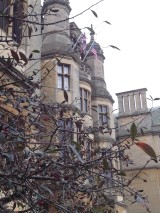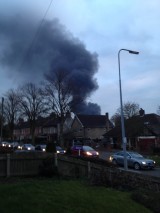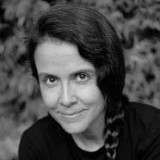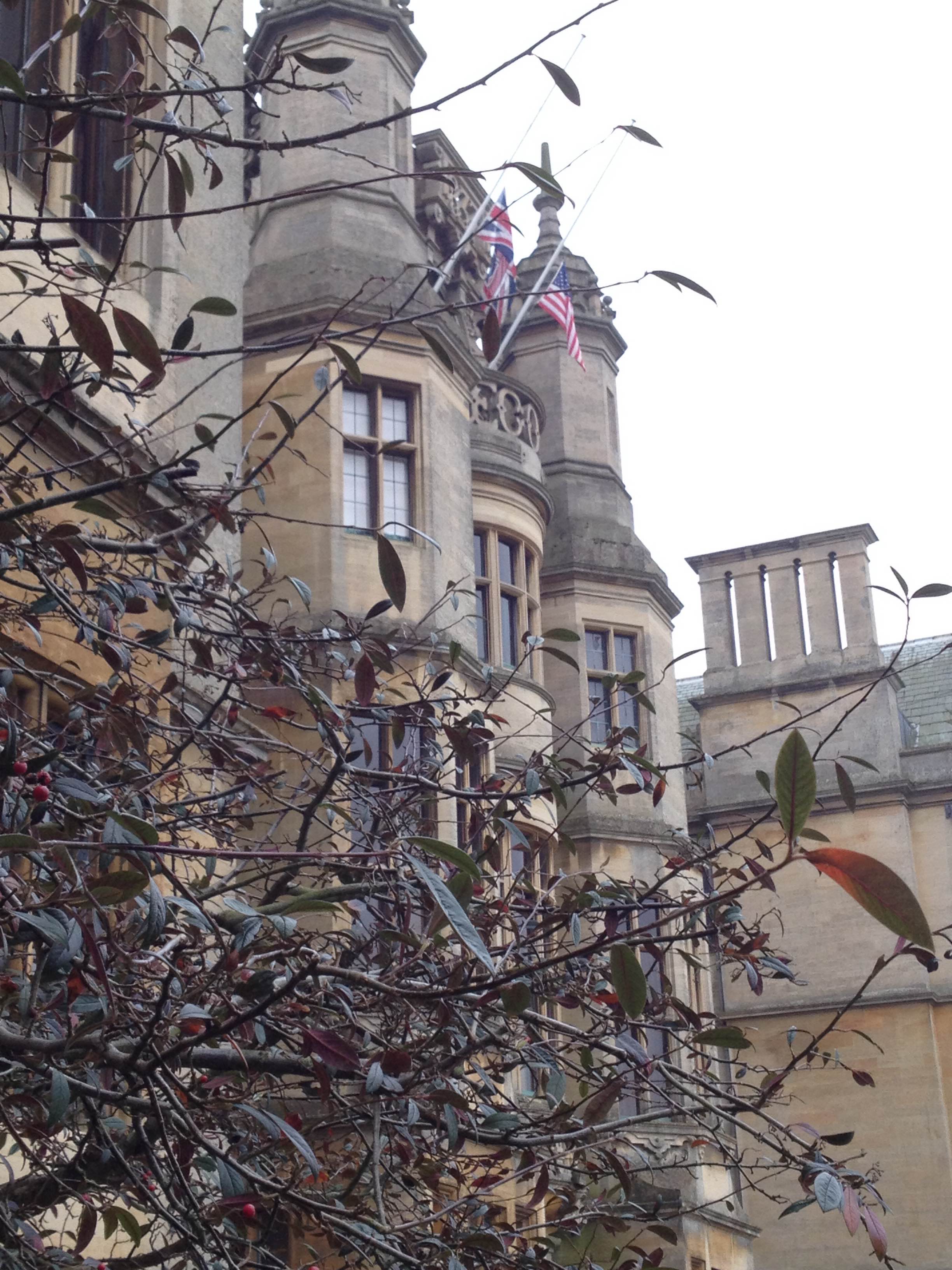 The flags, one for the US, one for the UK, are flying at half-mast today at Harlaxton. Stephanie, an archaeology student from University of Evansville died yesterday due to complications of a long-term illness. This morning, the principal gave an address in lieu of lecture, speaking of Stephanie’s time at Harlaxton and offering thoughts from one of her favorite authors, JRR Tolkien. When someone dies young, it is shocking and painful. I didn’t know Stephanie, but from the stories I heard last night on the soft brown leather sofa in the Schroeder Lounge, she was one for adventure, and Harlaxton is a place she loved. She worked two jobs last year to earn enough money to come here. She endured endless difficulties and inconveniences to come here, to stay here, to embrace every adventure possible.
The flags, one for the US, one for the UK, are flying at half-mast today at Harlaxton. Stephanie, an archaeology student from University of Evansville died yesterday due to complications of a long-term illness. This morning, the principal gave an address in lieu of lecture, speaking of Stephanie’s time at Harlaxton and offering thoughts from one of her favorite authors, JRR Tolkien. When someone dies young, it is shocking and painful. I didn’t know Stephanie, but from the stories I heard last night on the soft brown leather sofa in the Schroeder Lounge, she was one for adventure, and Harlaxton is a place she loved. She worked two jobs last year to earn enough money to come here. She endured endless difficulties and inconveniences to come here, to stay here, to embrace every adventure possible.
Yesterday, while Stephanie was in hospital in a coma, the bombs went off in Brussels, and the power station in Grantham caught fire. For a short time, Grantham was completely cut off from the rest of the UK, parts of it with no electricity, no rail service, no access in or out.  When the call came on my friend’s land line with the news of Stephanie’s death, I imagined the bombs, the explosions, were the world saying ‘No, we will not let her go!’ But she went, doing what she loved, living an adventure.
When the call came on my friend’s land line with the news of Stephanie’s death, I imagined the bombs, the explosions, were the world saying ‘No, we will not let her go!’ But she went, doing what she loved, living an adventure.
When I tell people I’ve moved country, changed jobs, divorced, given away most of my belongings and said goodbye to family and friends, they say I’m brave. I always deflect it in some way. It doesn’t feel like bravery when your life no longer fits, when you have to leave or else face the prospect of a kind of death of the soul, of the spirit. When I first arrived, and everything was new and shiny, and the path was made clear for me, I kept asking those around me if it was really okay to feel this happy. This much joy. Nothing in my life had ever felt so easy, so right, as moving to England. Yet, really, it was the most difficult thing I’d ever done – I just didn’t realize it until I returned in January after the last of the sorting, the signing of documents, the open-ended goodbyes and not knowing when I would see my children next. The long, dark nights of January and February were the darkest I’ve ever known. In that stillness and quiet, I got to see into the abyss of myself, the darkness that the noise of the world, of family, friends, and technology so easily distract us from. Now, when people say I’m brave, I get it, because now I know what I’ve lost.
My friend Bianca has a poem on her fridge, given to her by a friend. ‘Kindness’, by Naomi Shihab Nye, begins like this: ‘Before you know what kindness really is / you must lose things, / feel the future dissolve in a moment / like salt in a weakened broth. / What you held in your hand, / what you counted and carefully saved / all this must go so you know / how desolate the landscape can be, / between the regions of kindness’. It’s this desolate landscape I saw when I returned from the States in the dark cold quiet of January. Now that it’s March, yes, the days are longer and the flowers are emerging, but I sat with that desolate landscape, and I reached out from that landscape and was met with kindness and love, and now, yes, I understand that I am brave. And Stephanie was brave. She ventured out even when it hurt like hell. Thank you, Stephanie, for helping the rest of us see what bravery looks like.
‘Kindness’, by Naomi Shihab Nye, begins like this: ‘Before you know what kindness really is / you must lose things, / feel the future dissolve in a moment / like salt in a weakened broth. / What you held in your hand, / what you counted and carefully saved / all this must go so you know / how desolate the landscape can be, / between the regions of kindness’. It’s this desolate landscape I saw when I returned from the States in the dark cold quiet of January. Now that it’s March, yes, the days are longer and the flowers are emerging, but I sat with that desolate landscape, and I reached out from that landscape and was met with kindness and love, and now, yes, I understand that I am brave. And Stephanie was brave. She ventured out even when it hurt like hell. Thank you, Stephanie, for helping the rest of us see what bravery looks like.
Through Gandalf, JRR Tolkien says, ‘I will not say, do not weep, for not all tears are evil’. In the desolate landscape, tears can feel evil. They sting the eyes. But they also release the pain of loss, of grief, and open the way for the empty vessel to be filled by the next great adventure. I’ll leave you with this song, Newton Faulkner’s ‘Write It On Your Skin’. I’ve come to think of it as my anthem. Maybe Stephanie would have liked it, too.
